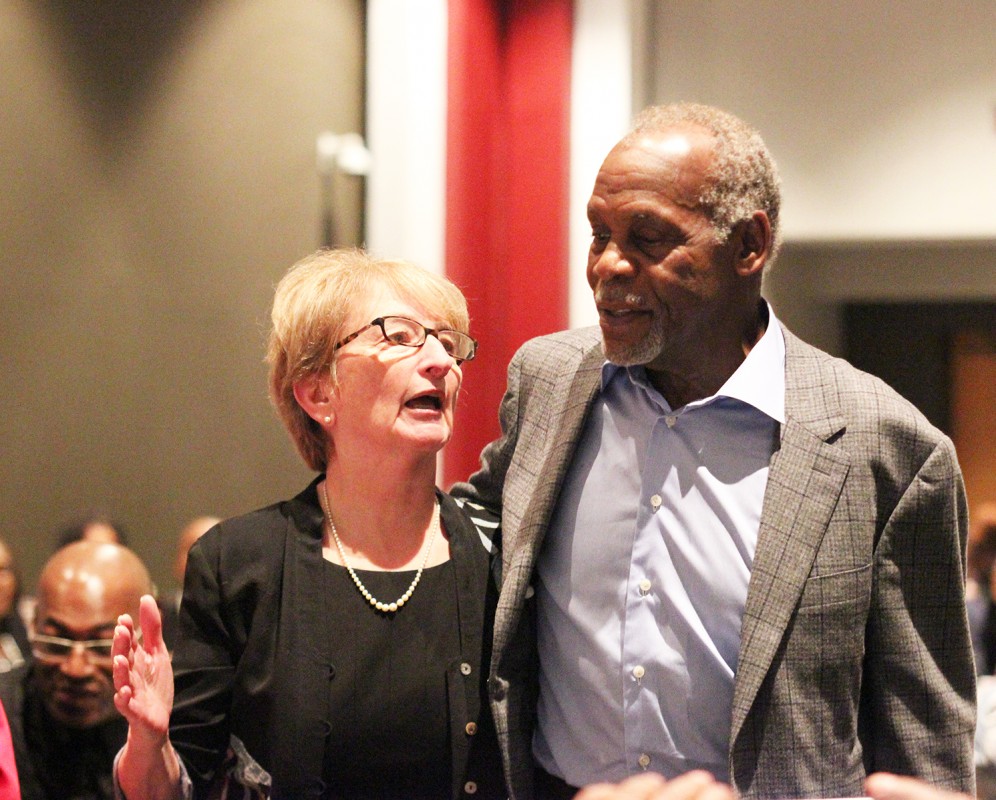
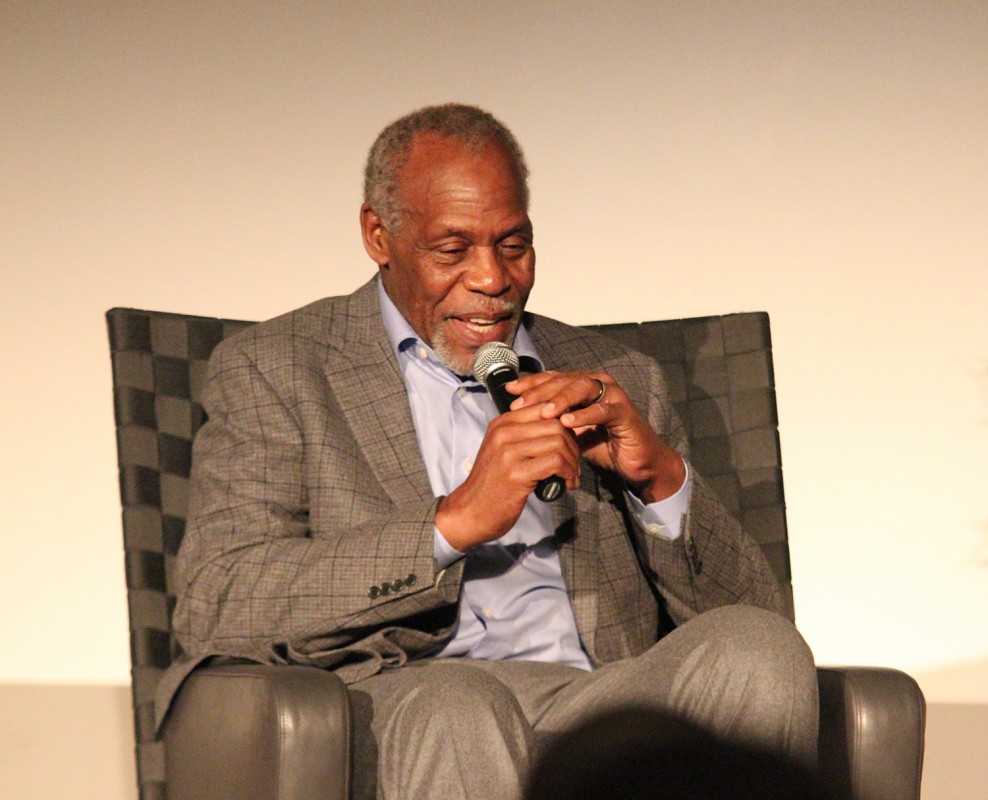


Author: Kirsten J. Barnes | CCBP Contributor
For 29 years, The University of Alabama has joined Stillman College, Shelton State Community College and The Tuscaloosa Southern Christian Leadership Conference to bring the Tuscaloosa community inspiring Realizing the Dream events that pay tribute to Dr. Martin Luther King Jr. And for the past 10 years, the celebration has included the annual Legacy Banquet, which recognizes individuals whose work keeps alive King’s tradition expressed in this year’s theme Through Service to Others.
“Fifty years ago, having a room like this filled with such a diverse gathering of allies in Tuscaloosa, Ala., would have been nearly impossible,” said Stillman College Vice President and Provost Mark McCormick in his opening remarks. “Nevertheless, discrimination still exists both in overt and covert forms. Discrimination based on race, gender, sexual orientation, nationality, religious background and political beliefs takes place both out in the open and behind closed doors. We have come a long way, but we have a long way yet to go before Dr. King’s dream is fully realized.”
In addition to honoring three living legends who have worked tirelessly in their service to others, this year’s Legacy Banquet featured a keynote conversation between American actor/director/political activist Danny Glover and Stillman College Vice President of Student Affairs Dr. Joseph F. Scrivner.
Glover, 71, grew up in California, the son of parents who were among the first African- Americans to work for the U.S. Postal Service. Before beginning his acting career, Glover also worked as a civil servant community organizer with the Model Cities Program in San Francisco.
In answering questions posed by Scrivner, Glover ranged over many years of civil rights history. He recalled receiving his introduction to the struggle by his parents and acknowledged that his own work in the movement was in many ways a response their involvement.
“I remember watching the Montgomery Bus Boycott on television,” he said. “Television was a new phenomenon at that time. I had the validation of my parents and the way in which they celebrated and embraced the moment as well.”
Glover went on to lead a five-month strike at San Francisco State University during 1968 in an effort to get the school to start a department of black studies (today called Africana Studies). “We didn’t realize that the Asian American students, the Hispanic American students and the Native American students had their own grievances,” Glover said. “They all joined us, as well as faculty. It shut the campus down for five months. What emerged was the College of Ethnic Studies at San Francisco State. It’s still there and I’m still engaged.”
Glover reviewed his reading of civil rights literature for the audience, especially praising W.E.B. Du Bois’ Black Reconstruction in America 1860-1880 and the works of Ida B. Wells, calling her a “great writer and journalist.”
Glover talked a lot about his family, especially his mother, how much his mom and dad meant to him and his four siblings. “I’m grateful for my mother and father,” he said. He told of his mother graduating from Paine College in Augusta, Georgia in 1942.
He dedicated his role in “Places in the Heart” to his mother. The movie starred Sally Fields and Glover played the role of Mose, a would-be thief turned helpful handyman. Glover told Dr. Ed Mullins, who introduced him, “Places in the Heart” was one of his favorite roles and that working with Sally Fields was a highlight in his career.
Glover told how he had to identify his mother when she was killed in an auto accident the same day he was selected for the role in “Places in the Heart.” He said his mother would have said, “’Lord, if I had to leave, don’t hurt my babies.’ That was her.” His siblings, several of whom were in the wreck, were unhurt.
Glover said his career was part of a journey much larger than he and much bigger than African-Americans. He said King made it clear he was not just trying to save African-Americans but was “trying to save this country’s soul. So when we talk about his legacy, we talked about Dr. King’s legacy … and realizing the dream. It’s about how do we save this country’s soul?”
Videos were shown reflecting the influence of the following individuals for their efforts in advancing the civil rights movement:
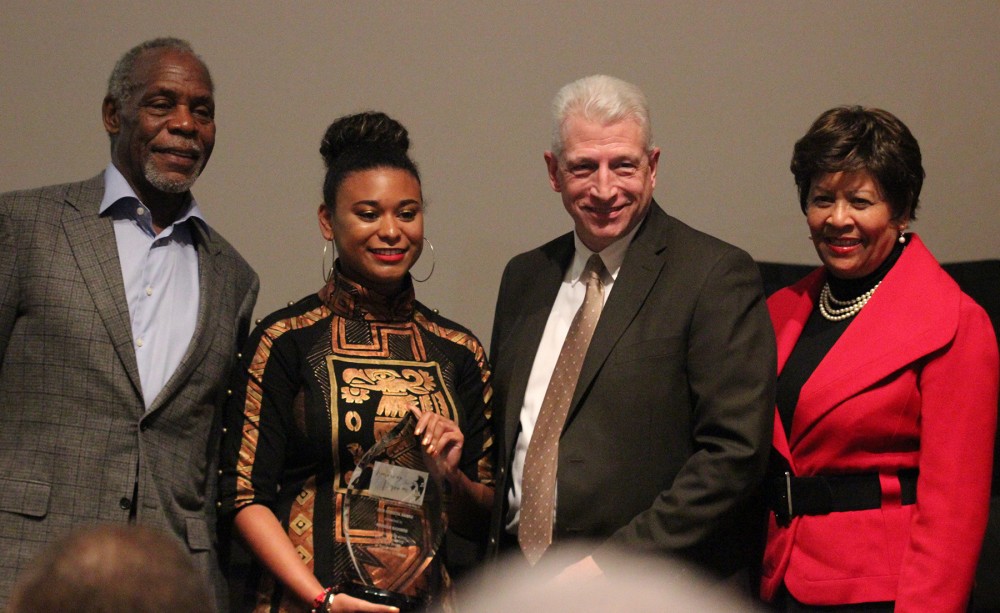
UA Junior Marissa Navarro received the Horizon Award for her efforts in founding the first campus Hispanic Latino Association for students, faculty and staff. “Our main focus is to recruit, retain and graduate Hispanic and Latino students,” Navarro said, to make sure they do not get lost on the nearly 40,000-student campus. “Facing racism can have an impact on your self-esteem and academic life. I wanted to provide a space on campus for students like me who came in lost and needed a guide.”
The organization is open to all students who want to learn more about Hispanic and Latino culture and holds events to reduce ethnic stereotypes on campus. “We like to spread knowledge about the difference between Latinos and Hispanics and how different each country is and how not everyone comes from Mexico,” said Navarro, who started the organization with only a few students and has seen It grow dramatically.
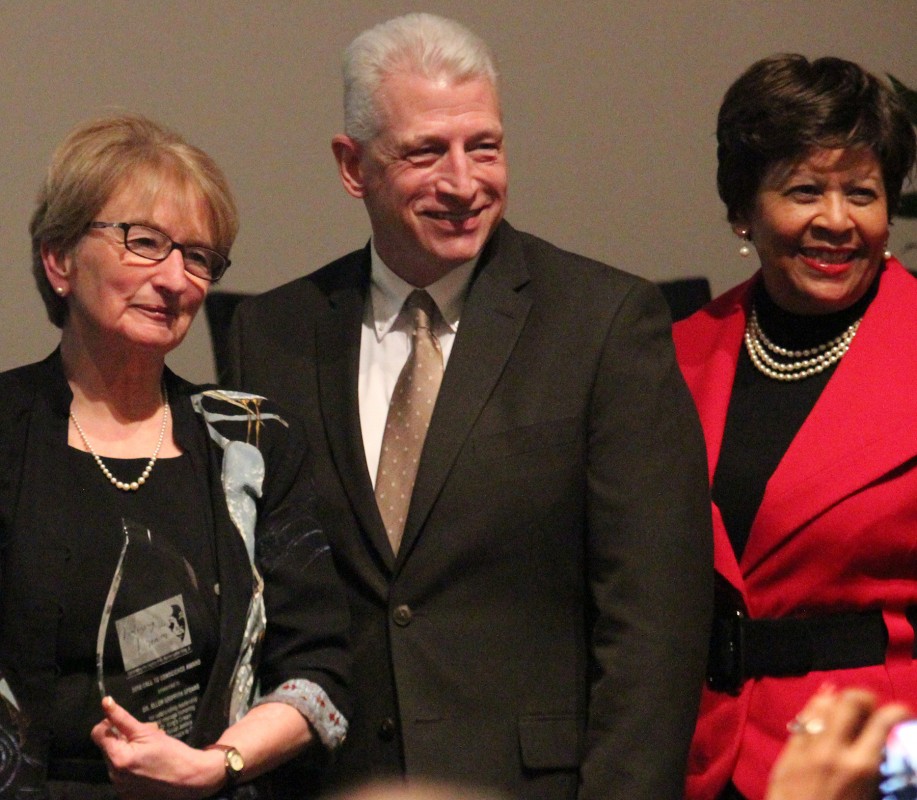
The Call to Conscience Award went to UA Professor Ellen G. Spears, author of “Baptized in PCBs: Race, Pollution, and Justice in an All-American Town.” Spears said she received a first-hand education from civil rights leaders, many of whom were from Alabama and became an environmental researcher to bring an end to the disproportionate amount of toxic waste being dumped in minority communities. “Democracy is under serious threat at the moment. We need to prepare a generation of young people to renew democracy and to take the kinds of things they are learning — things they are studying and reading — out into the world,” Spears said. “We need to prepare students to make a better world, to learn the critical thinking skills to analyze the situation and to then make their own choices about the path forward.”
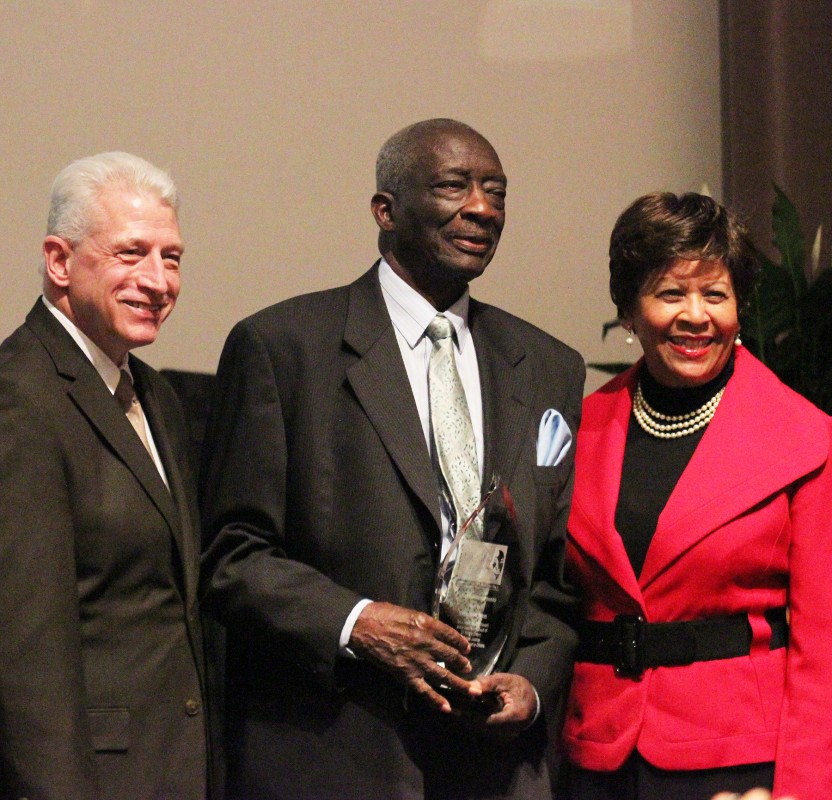
The Rev. Frank Dukes was the recipient of the Mountaintop Award for his efforts in leading the Birmingham Selective Buying Campaign of 1962, while working as director of alumni affairs and public relations at Miles College, his alma mater. At the time, blacks legally could only work labor jobs and blacks and whites could not intermingle in shops and offices. “If we could stop the black people from shopping in downtown Birmingham, we could make Bull Conner understand,” said Dukes, referring to Theophilus Eugene “Bull” Connor, who served as the elected commissioner of public safety for the city of Birmingham and became an international symbol of segregation. “We met with the power structure of white men,” Dukes said. “When we first started to meet with them, they tried to stop us from boycotting.”
After learning that retail stores operated on a 20 percent profit margin and black shoppers accounted for 25 percent of their shoppers, he planned the boycott that had a huge impact on the stores’ bottom lines. However, law continued to prevent stores from hiring black clerks. “If we are ever to have a just society for everybody [it will be] when all people regardless of race, creed or color have a right to justice, freedom and equality,” Dukes said. “Then that will be the ideal society that Jesus Christ would want us to have.”
The event was attended by its largest crowd in the nine years of the event, about 500 people. Attendees included Tuscaloosa Mayor Walter Maddox. “We are always striving to be a more perfect union and events like this remind us of our social and moral obligations,” said Maddox, who received the Call to Conscience Award in 2009. Tonight’s event, he said, reminds us we must keep working to solve problems of race and equality.
For a transcript of Mr. Glover and Dr. Scrivner’s keynote conversation, click here.